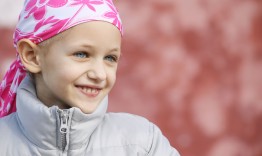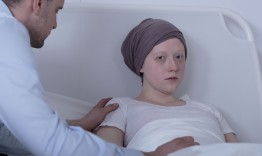
Targeting therapy & disease outcomes in paediatric cancer
Funding: CLCRF Research Fellowship
(2010–013; 2013–2016)
Researcher: Associate Professor Alex H Beesley
Dr Beesley has been employed within the CLCRF Laboratory in the Division of Cancer and Leukaemia Research since 2003, and was awarded the inaugural CLCRF Research Fellowship in July 2010. This three-year Fellowship provided support for Dr Beesley to conduct research to investigate the ways in which patients with leukaemia become resistant to certain therapies, in particular steroids such as dexamethasone. This class of drugs is one of the most important for the treatment of the disease and yet some patients develop resistance, which can lead to relapse.
Our studies using bone marrow cells from leukaemia patients (grown in the test tube to generate cell lines) have helped us to identify some of the mechanisms associated with the development of steroid resistance. This includes specific changes to the metabolism of the cancer cells, which alters the way in which they use nutrients, for example sugar. We have been investigating these changes in greater detail using modern biochemical methods at the University of Western Australia, and also collaborating with researchers at the Children’s Cancer Institute Australia in Sydney to identify new drugs that may be used to overcome steroid resistance in patients who have relapsed.
A second part of this study was the development of ‘biomarkers’ that can help in the early identification of leukaemia patients that are at risk of relapse. To achieve this we have studied the gene profiles of a group of patients and identified particular patterns that are predictive of good or inferior clinical outcome. The accurate identification of patients at risk of relapse can improve treatment protocols for patients, tailoring the amount of therapy they receive to their level of risk. This improves not only cure rates, but also minimises secondary side effects of chemotherapy. In addition these gene models have identified drugs that may be of particular benefit in certain patient groups.
In 2013, Dr Beesley was successful in renewing his Fellowship, with the aim of conducting research into a rare type of cancer called NUT midline carcinoma (or NMC). This is a terribly aggressive cancer that can affect children of all ages, and there is currently no cure. Patients are treated with aggressive chemotherapy and surgery but survival is typically less than one year. The first report of this rare disease was published by Professor Kees in 1991, and we continue to be one of very few laboratories in the world studying its biology. Thanks to the funding provided from the CLCRF, we have been able to obtain material from investigators and tumour banks around the world to generate a unique panel of NMC cell lines here in Perth. Using this comprehensive panel we have started testing for drugs that might be more effective at killing the cancer cells, and we have also sent the samples to have their entire genetic code analysed, the first time that this has been done for this disease. This information will provide a blueprint of what goes wrong in NMC cells and the types of drugs that might be best for treatment. In 2013 he was awarded two CLCRF Project Grants to further support this NMC research, and details of these projects are provided below.
As part of his Fellowship he has co-written two successful NHMRC Project Grant applications together with Professor Kees and has applied to the NHMRC for additional funding to support the NMC research program. He has published 11 journal articles during his Fellowship and has been responsible for presenting research from the laboratory to community groups and scientific audiences, both in Australia and overseas, acknowledging the support from the CLCRF at each opportunity.
Similar Project
Therapy & molecular genetics of leukaemia in infants
Funding: Triennial Block Grant
(2012–2015)
Researcher: Professor Ursula R Kees
Molecular genetics of childhood tumours
Funding: Million Dollar Recognition Award
(2012–2017)
Researcher: Professor Ursula R Kees
Effective therapies for NUT midline carcinoma
Funding: CLCRF Project Grant
(Jan 2014–Dec 2014)
Researcher: Associate Professor Alex H Beesley
Morpholino therapy for childhood cancer
Funding: CLCRF Project Grant
(Jan 2014–Dec 2014)
Researcher: Associate Professor Alex H Beesley




